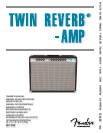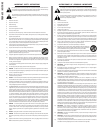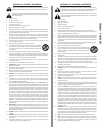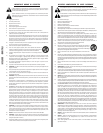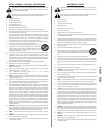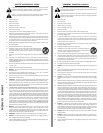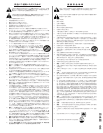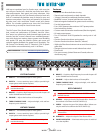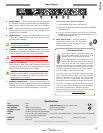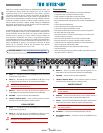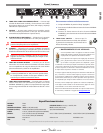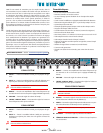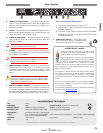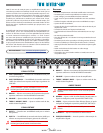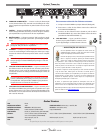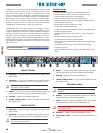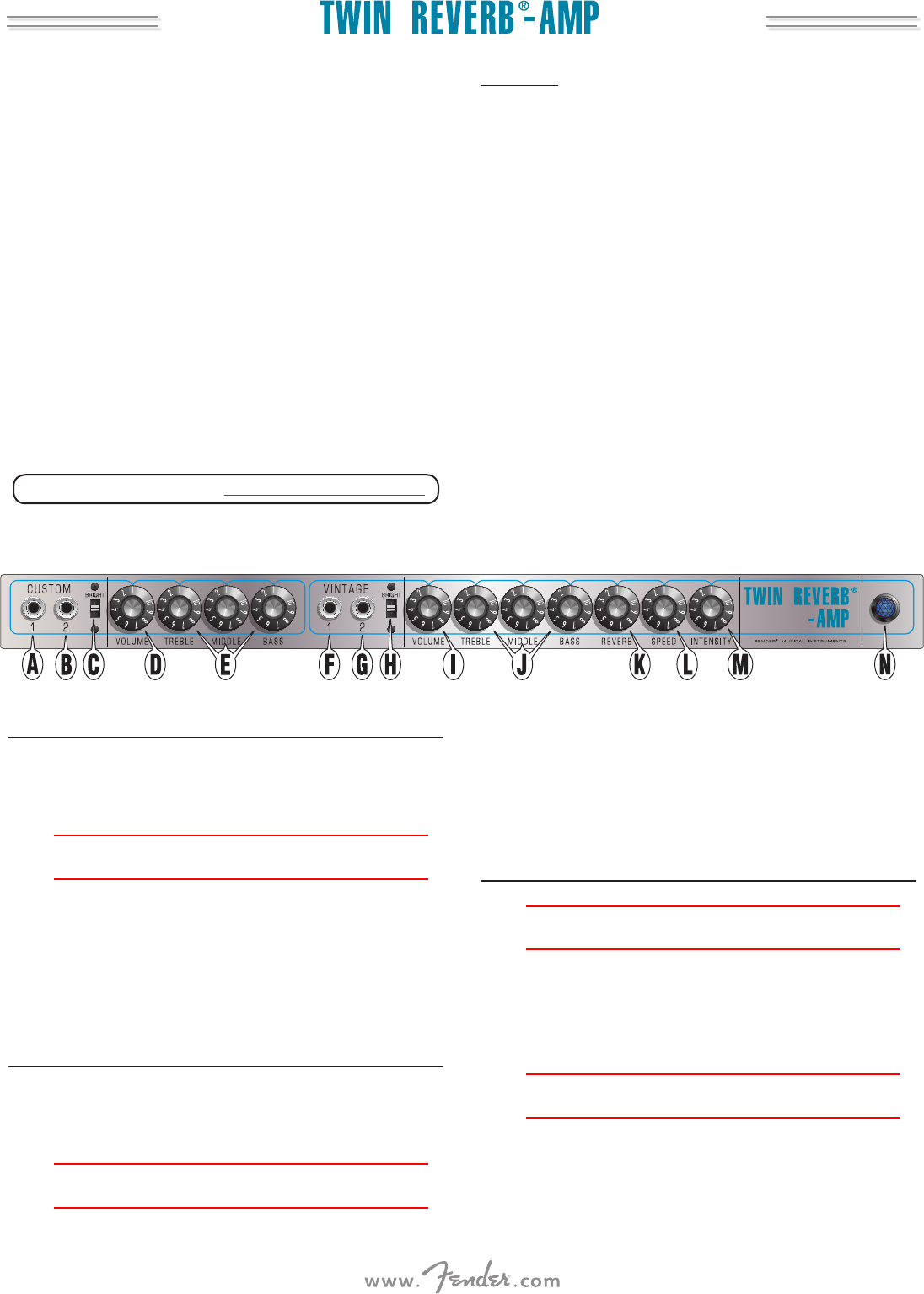
ENGLISH
8
1968 was a transitional year for Fender amps, with tone that
was still pure Fender but a look that was brand new. With a
silver-and-turquoise front panel and classy aluminum “drip
edge” grille cloth trim, the Twin Reverb received a fresh new
face as it remained the backline amp of choice for pros and
amateurs everywhere. Clear, deep and powerful, it produced
big tube tone, with world-class Fender reverb and vibrato
effects. For countless guitarists ever since, the Twin Reverb
has been the go-to amp for classic Fender sound.
The ’68 Custom Twin Reverb Amp pays tribute to the classic
look, sound and performance of Fender’s late-’60s “silver-
face” amps. In a special twist, both channels boast reverb and
tremolo, and the “custom” channel has a modified Bassman®
tone stack that gives modern players greater tonal flexibility
with pedals. The amp also features quicker gain onset and
reduced negative feedback for greater touch sensitivity. The
’68 Custom Twin Reverb’s dual 12” Celestion® G12V-70 speak-
ers also deliver a more distinctively rock ‘n’ roll flavor.
PRODUCT REGISTRATION — Please visit: www.fender.com/product-registration
Features:
• Modified Twin Reverb all-tube circuitry
• Shared reverb and tremolo on both channels
• “Vintage” channel for traditional silverface tonality
• Modified “custom” channel with Bassman tone stack
• Reduced negative feedback for greater touch sensitivity
• Four 6L6 output tubes
• Four 12AX7 preamp tubes and two 12AT7 preamp tubes
• Hand-wired tube sockets
• Custom-made Schumacher transformers (like the originals)
• 85 watts output power
• Two 12” Celestion® G12V-70 speakers for crunchy rock ‘n’ roll
tones
• Genuine Fender tube-driven spring reverb
• Genuine Fender tube-driven tremolo (“vibrato”)
• 1968-style Silverface aluminum trim around silver-turquiose
grille cloth
• Vintage-style two-button reverb/vibrato foot switch
• Fitted cover
• Five-year warranty (United States and Canada; other ter-
ritories may vary)
CUSTOM CHANNEL
A. INPUT 1 — Full sensitivity input for most guitars.
B. INPUT 2 — Lower sensitivity input (-6dB) to provide high-
output guitars with cleaner response.
♫
Both INPUT 1 and INPUT 2 become equal in sensitivity when
used simultaneously.
C. BRIGHT — Provides a high-frequency boost which tapers o
as the VOLUME level is increased.
D. VOLUME — Adjusts the loudness of the amplier.
E. TREBLE / MIDDLE / BASS — Adjusts the high-, mid- and low-
frequency tone character.
VINTAGE CHANNEL
F. INPUT 1 — Full sensitivity input for most guitars.
G. INPUT 2 — Lower sensitivity input (-6dB) to provide high-
output guitars with cleaner response.
♫
Both INPUT 1 and INPUT 2 become equal in sensitivity when
used simultaneously.
H. BRIGHT — Provides a high-frequency boost which tapers o
as the VOLUME level is increased.
I. VOLUME — Adjusts the loudness of the amplier.
J. TREBLE / MIDDLE / BASS — Adjusts the high-, mid- and low-
frequency tone character.
BOTH CHANNELS
♫
Reverb and Vibrato affect both the CUSTOM and the
VINTAGE channels.
K. REVERB — Adjusts the level of the Reverb eect. Reverb can
be switched on/o from the FOOT SWITCH{U}.
L. SPEED — Adjusts the rate of the Vibrato eect. Vibrato can
only be switched on/o from the FOOT SWITCH{U}.
♫
The included foot switch {U} must be connected to use the
Vibrato effect.
M. INTENSITY — Adjusts the depth of the Vibrato eect.
N. POWER INDICATOR — Illuminates when power is switched
on to the amplier.



